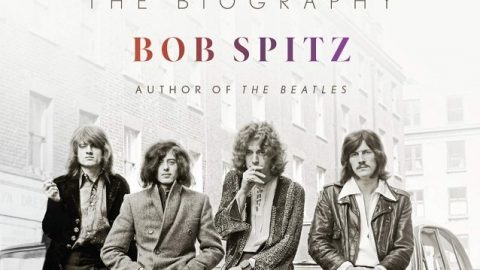
On October 2, 2018, Washington Post journalist Jamal Khashoggi walked into the Saudi consulate in Istanbul and never came out again. Over the next few months, a United Nations investigation suggested that hitmen working for the Saudi royal family had ambushed Khashoggi and suffocated him to death, all because he wrote things they didn’t want to hear. The grisly details of the report shocked the world, but the Saudi government initially denied killing Khashoggi, before the attorney general later stated that the killing was a “rogue operation”. Still, the richest family in the world has not been prosecuted for their alleged involvement.
Picking up the story straight after winning an Oscar for his Olympic doping scandal documentary, Icarus, director Bryan Fogel spent three years investigating the murder for his new film, The Dissident. Playing more like a blockbuster thriller than a documentary, the movie pushes into some pretty shocking places – placing Fogel himself in the firing line as he chased a story that covered hired guns, dirty money, information warfare and Jeff Bezos’s WhatsApp account.
Fogel sat down with NME to hear why he was willing to put himself in harm’s way…
How did you first hear about Khashoggi’s story?
“I had heard about Jamal, but I didn’t really know who he was. I think like much of the world in those days and weeks following his murder [in 2018], I started reading more about him and what he was writing about, and got more and more invested in the story.”
Where do you even start with something as big and intimidating as this?
“I reached out to The Washington Post and they offered to meet with me and help however they could. Then I made another connection, around the beginning of November [2018], to [Jamal’s finance] Hatice Cengiz. At the time, she was definitely not interested in participating. She was being hounded by countless media organisations all over the world, but eventually she invited me to come and meet with her in Istanbul. I spent the next five weeks with her and during that time we built a lot of trust. I promised her that if she was willing to participate in this project that I would do everything I could to tell her story and help to seek justice for Jamal. Hopefully, I’ve kept my word.”

You managed to get some incredible access to the people in charge – how did you first approach the head of the Turkish police?
“That interview was a year in the making – between my first conversations and them handing over the [murder] transcript to me, which has still not been handed over to any media organisation in the world, outside of intelligence services. It was a slow process of them trusting me to not take a stance on any issues involving the Turkish Government, of them understanding that I was just there to tell the story of Jamal’s murder.”
You must feel like you know Jamal pretty well after spending so long researching this film…
“You know, the more that I got to know Jamal through his writings, and through the people that loved him, the easier it was for me to want to work to tell his story. I saw him as someone that was kind, someone who was generous. He was someone who truly believed in the ideals of democracy, the ideals of free speech and a free press. He was someone who was willing to lose everything to be able to raise his voice and live freely. I took great inspiration from Jamal.”
This film is going to anger some very powerful, very dangerous people. Are you worried for your safety?
“I went into this consciously making a decision to tell this story, and if I’m coming into it from a place of fear then clearly I shouldn’t be doing this work. I knew I was making a film about a very powerful and wealthy dictatorship that murdered and cut journalist to pieces for speaking truth to power. I went into it with open eyes.”

The film shows how easy it is for a government to hack someone’s phone if they want to – does that make you paranoid?
“You know, I do the best I can. But there’s only so much you can do. And If they can hack Jeff Bezos, who can’t they hack?!”
Are you hopeful about the future of the Saudi region?
“I think that there’s a lot to be optimistic for, in the sense that nothing was ever going to happen under the Trump administration. Now Biden [who’s said he’s going to stop selling weapons to the Saudi government] is in office there appears to be a real hope of meaningful change. Saudi women’s rights activist, Loujain al-Hathloul, was freed today and that’s a really big deal. I always try to look on the bright side of things.”
What responsibility do documentary filmmakers have in 2021?
“It’s tough, but I like taking on difficult subjects – subjects that I believe that can have a really meaningful change in the world. But I do also think that the struggle for distribution is something that really needs to be addressed, not just for this project, but for other filmmakers, like myself, who are trying to tell stories that that take on big global media companies that are choosing to do business with organisations that they probably shouldn’t be. Films like this need to be made but, more importantly, they need to be seen.”
‘The Dissident’ will have its UK Premiere online at the Glasgow Film Festival on March 6
The post ‘The Dissident’: meet the fearless filmmaker who took on the Saudi royal family appeared first on NME | Music, Film, TV, Gaming & Pop Culture News.









